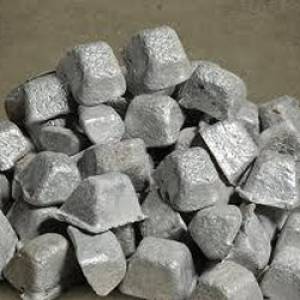Description
Aluminium Alloys: High-Performance Materials for Diverse Applications
Aluminium alloys are a family of materials renowned for their exceptional combination of strength, lightweight nature, corrosion resistance, and excellent machinability. By alloying aluminium with other elements, we significantly enhance its inherent properties, tailoring it to meet the specific demands of countless industries. This results in a diverse range of alloys, each possessing unique characteristics ideal for various applications.
Key Properties & Advantages:
- Lightweight: Significantly lighter than steel, offering substantial weight reduction benefits in transportation, aerospace, and construction.
- High Strength-to-Weight Ratio: Provides exceptional structural integrity while minimizing weight, leading to improved fuel efficiency and enhanced performance.
- Excellent Corrosion Resistance: Naturally resistant to corrosion, offering long-term durability and reducing maintenance costs. Specific alloys offer even greater corrosion protection.
- High Machinability: Easy to machine, fabricate, and form, reducing manufacturing costs and time.
- Good Thermal and Electrical Conductivity: Useful in applications requiring efficient heat transfer or electrical conductivity.
- Recyclability: Aluminium is infinitely recyclable, contributing to environmental sustainability and cost savings.
- Formability: Can be readily formed into various shapes and profiles through processes like extrusion, casting, forging, and rolling.
Common Aluminium Alloy Series & Applications:
Our range encompasses a wide variety of aluminium alloys, each designed for specific applications:
1. 1xxx Series (Commercially Pure Aluminium):
- Composition: Primarily aluminium with minimal alloying elements.
- Properties: High ductility, excellent corrosion resistance, good electrical conductivity.
- Applications: Electrical conductors, chemical equipment, food packaging.
2. 2xxx Series (Copper Alloys):
- Composition: Primarily aluminium and copper.
- Properties: High strength, good weldability (with limitations).
- Applications: High-strength structural components in aerospace and automotive industries. Note: Susceptible to stress corrosion cracking.
3xxx Series (Manganese Alloys):
- Composition: Primarily aluminium and manganese.
- Properties: Improved strength and workability compared to pure aluminium.
- Applications: Deep drawing, can making, automotive parts.
4xxx Series (Silicon Alloys):
- Composition: Primarily aluminium and silicon.
- Properties: Excellent casting characteristics, high fluidity.
- Applications: Casting applications, engine blocks, cylinder heads.
5xxx Series (Magnesium Alloys):
- Composition: Primarily aluminium and magnesium.
- Properties: Good strength, excellent corrosion resistance, weldable.
- Applications: Marine applications, beverage cans, pressure vessels.
6xxx Series (Magnesium and Silicon Alloys):
- Composition: Primarily aluminium, magnesium, and silicon.
- Properties: Excellent strength, weldability, and formability.
- Applications: Extrusions, architectural applications, automotive parts.
7xxx Series (Zinc Alloys):
- Composition: Primarily aluminium and zinc.
- Properties: Very high strength, suitable for aerospace and high-performance applications.
- Applications: Aerospace components, high-strength structural parts.
Choosing the Right Aluminium Alloy:
Selecting the appropriate aluminium alloy requires careful consideration of the intended application, required mechanical properties, corrosion resistance needs, and manufacturing processes. Our team of experts is available to assist you in choosing the optimal alloy for your specific project. Contact us today to discuss your requirements.
Note: This is a general overview. Specific properties and applications can vary depending on the exact alloy composition and manufacturing process. Always refer to the material data sheet for detailed information on a specific alloy.
